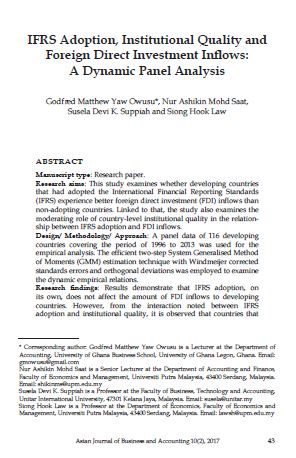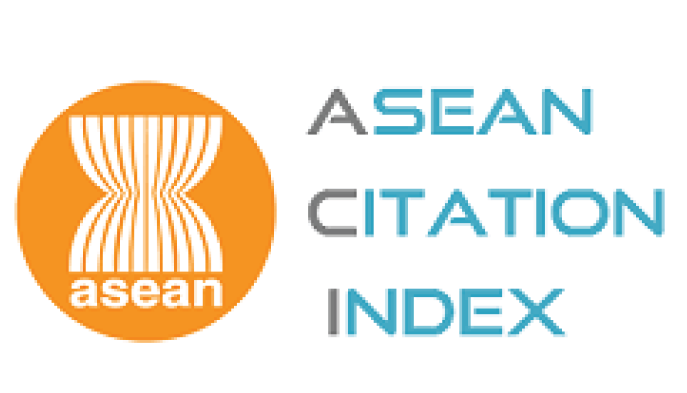IFRS Adoption, Institutional Quality and Foreign Direct Investment Inflows: A Dynamic Panel Analysis
Abstract
Research aims: This study examines whether developing countries
that had adopted the International Financial Reporting Standards
(IFRS) experience better foreign direct investment (FDI) inflows than
non-adopting countries. Linked to that, the study also examines the
moderating role of country-level institutional quality in the relationship
between IFRS adoption and FDI inflows.
Design/ Methodology/ Approach: A panel data of 116 developing
countries covering the period of 1996 to 2013 was used for the
empirical analysis. The efficient two-step System Generalised Method
of Moments (GMM) estimation technique with Windmeijer corrected
standards errors and orthogonal deviations was employed to examine
the dynamic empirical relations.
Research findings: Results demonstrate that IFRS adoption, on
its own, does not affect the amount of FDI inflows to developing
countries. However, from the interaction noted between IFRS
adoption and institutional quality, it is observed that countries that adopted the IFRS experience better FDI inflows when the institutional
quality is present.
Theoretical contribution/ Originality: This study extends knowledge
on the IFRS-FDI nexus by examining the role of institutional
quality in the relationship.
Practitioner/ Policy implication: The findings of this study suggest
that the decision to adopt the IFRS should not be undertaken
as a stand-alone strategy. Instead, it should be taken in tandem
with other institutional reforms which are aimed at improving
institutional quality.
Research limitation/ Implications: Developing countries that have
adopted the IFRS as well as those that are planning to adopt it
should therefore, consider pursuing rigorous institutional developmental
reforms as a means of complementing their adoption
decision.
Keywords: Developing Countries, FDI, GMM, IFRS Adoption,
Institutional Quality.
JEL Classification: M41, M48
Downloads








